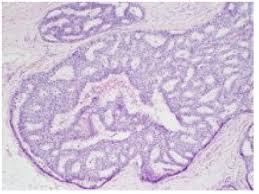Specific Immune Response May Prevent Spread of Breast Cancer Cells
 A specific immune response may prevent the spread of breast cancer cells within the body. Published in Cancer Immunology Research, the study from Moffitt Cancer Center shows that activating certain immune cells can stop dormant cancer cells from growing into new tumors.
A specific immune response may prevent the spread of breast cancer cells within the body. Published in Cancer Immunology Research, the study from Moffitt Cancer Center shows that activating certain immune cells can stop dormant cancer cells from growing into new tumors.
The researchers discovered that CD4+ Th1 cells, a type of immune cell, play a key role in targeting and eliminating dormant cancer cells. These cells, which can remain hidden in the body, have the potential to cause cancer to return, sometimes years after initial treatment.
“We found that the CD4+ Th1 immune response, especially the cytokine IFN-γ, can force these dormant cells into a state where they can no longer grow or spread,” said Brian Czerniecki, MD, PhD, chair of Moffitt’s Breast Oncology Department and lead author of the study. “This could be a game-changer in preventing cancer recurrence.”
The study also found that blocking cholesterol biosynthesis in these cells helps reduce their ability to survive and spread. Cholesterol plays an important role in cancer cell development, and the Moffitt researchers believe that targeting this pathway with existing drugs could enhance treatment options.
“These findings open the door to new strategies that could be combined with current therapies to stop cancer before it returns,” Czerniecki said.
Researchers also analyzed data from breast cancer patients and found that those with higher levels of CD4+ Th1 cells had a lower risk of cancer recurrence. This suggests that immune-boosting therapies could play a large role in long-term cancer management.
The implications of this study extends beyond breast cancer. Researchers believe the same immune response could be effective against other types of cancer, such as melanoma and lung cancer. By understanding how the immune system naturally targets and suppresses dormant cancer cells, this research could lead to broader applications in oncology, potentially improving survival rates for many patients.
Further studies are needed to determine how this immune response can be enhanced in patients. Future clinical trials will explore whether existing cholesterol-lowering drugs, combined with immunotherapy, can provide long-term protection against cancer recurrence.
